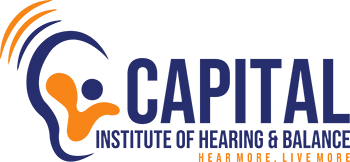The very short answer is that no one is too young to have their hearing evaluated. Even though most babies won’t be able to perform a beep/tone test until they are 6-8 months old, newborns in the United States have their hearing screened when they are as young as a few hours old, thanks to modern technology.
But I’m looking at you with your hydroflask, TikTok account and hair styled in the latest fashionable trend. I suspect you weren’t asking about babies born with hearing loss. Fess up: you think hearing tests are for people who grew up with corded telephones and still double space after a period. Because this is a common misconception, I’m going to give you a pass and repeat what I just said. No one is too young to have their hearing evaluated.
When should I have a hearing test?
Let’s talk about some of the situations when we recommend a hearing evaluation for everyone. Book an appointment if you:
- Have difficulty hearing normal, everyday sounds, especially if those around you seem to hear them just fine.
- Feel like you can hear normal sounds, but have difficulty understanding speech.
- Are regularly exposed to loud sounds recreationally or at work.
- Have bothersome tinnitus that disrupts your sleep, work, recreation or affects your mental well-being.
- Have a medical or genetic condition commonly associated with hearing loss.
- Notice a difference in hearing between ears. In other words, if one ear hears worse than the other.
- Have ringing/buzzing/chirping/other sounds (known as tinnitus) in one ear.
- Notice a change in hearing. If this is a sudden change, we consider this an emergency. Head to an emergency room—or better yet, an ear, nose and throat physician—to seek care. Gradual decreases in hearing over longer periods of time should be investigated, but are not usually considered emergencies.
What if I think my hearing is fine?
What if you don’t have any of those symptoms? A baseline hearing evaluation—just like a well-visit to your doctor, dentist or optometrist—is the way to make sure everything is okay. It also serves as a reference point for later evaluations. If hearing changes more rapidly than expected as you age, it can alert us to the need for a medical evaluation, intervention, or lifestyle or behavioral changes to prevent further decrements. An appointment with an audiologist is also a great time to chat about how to take care of your ears and protect your hearing.
Click for a free online hearing screening
You can get a jump start on knowing the status of your hearing. Click here or take your cursor on a short journey to the upper right corner of this page for a free online hearing screening. You’ll need a set of headphones/earbuds, but it will be worth your while!


